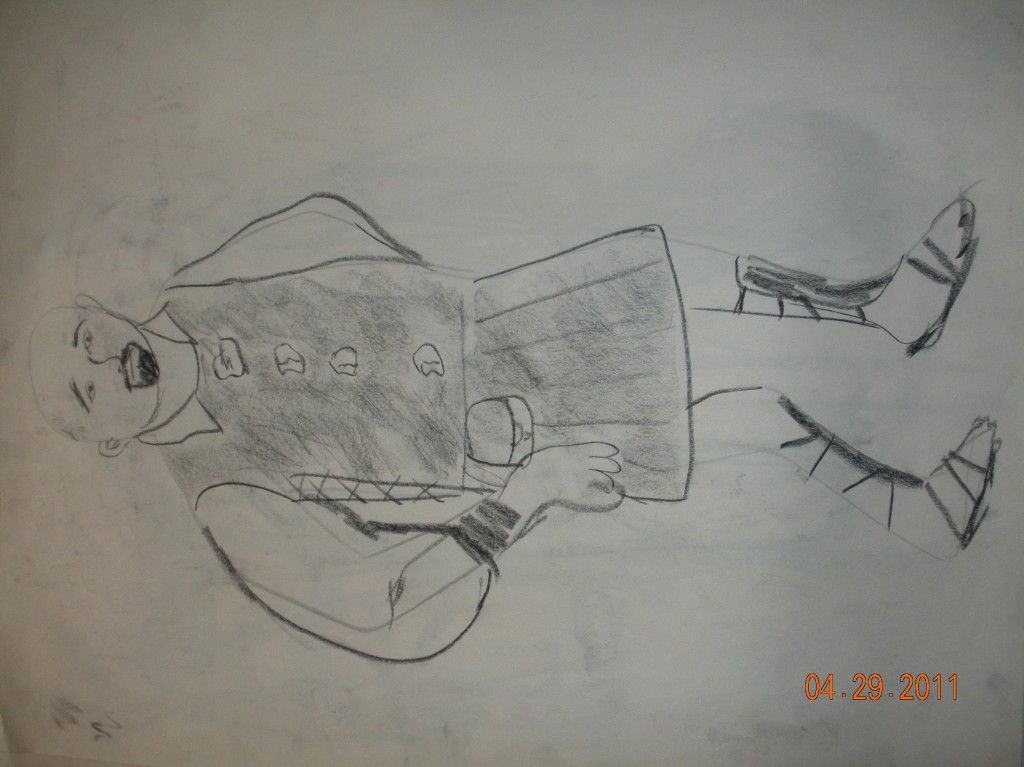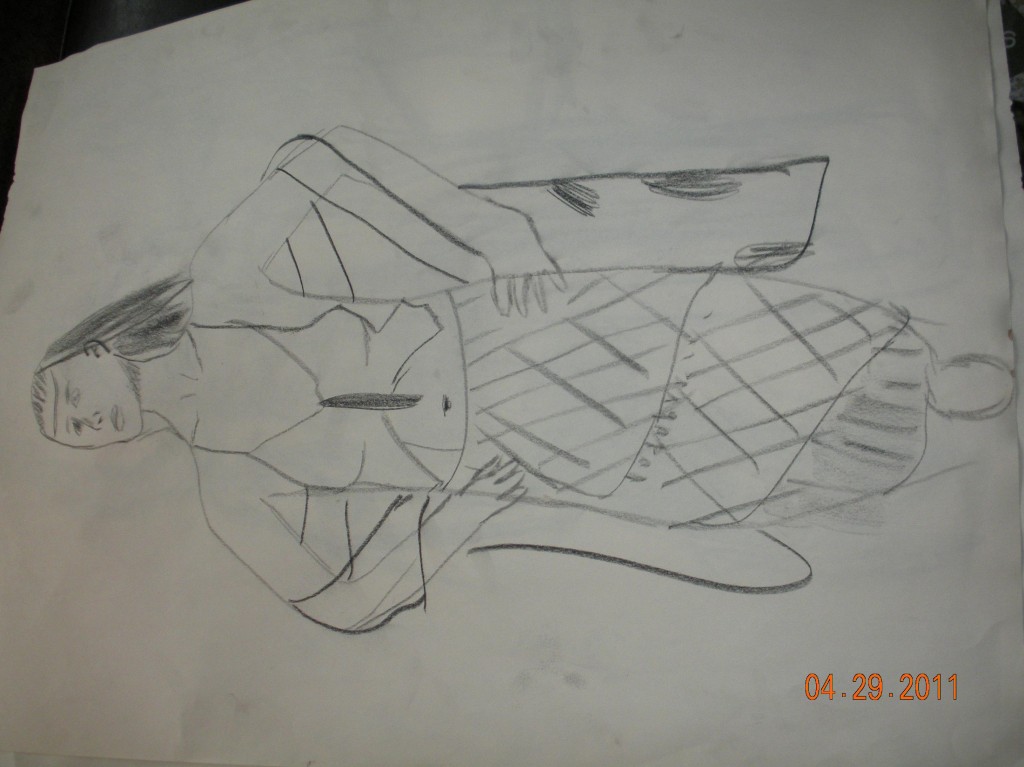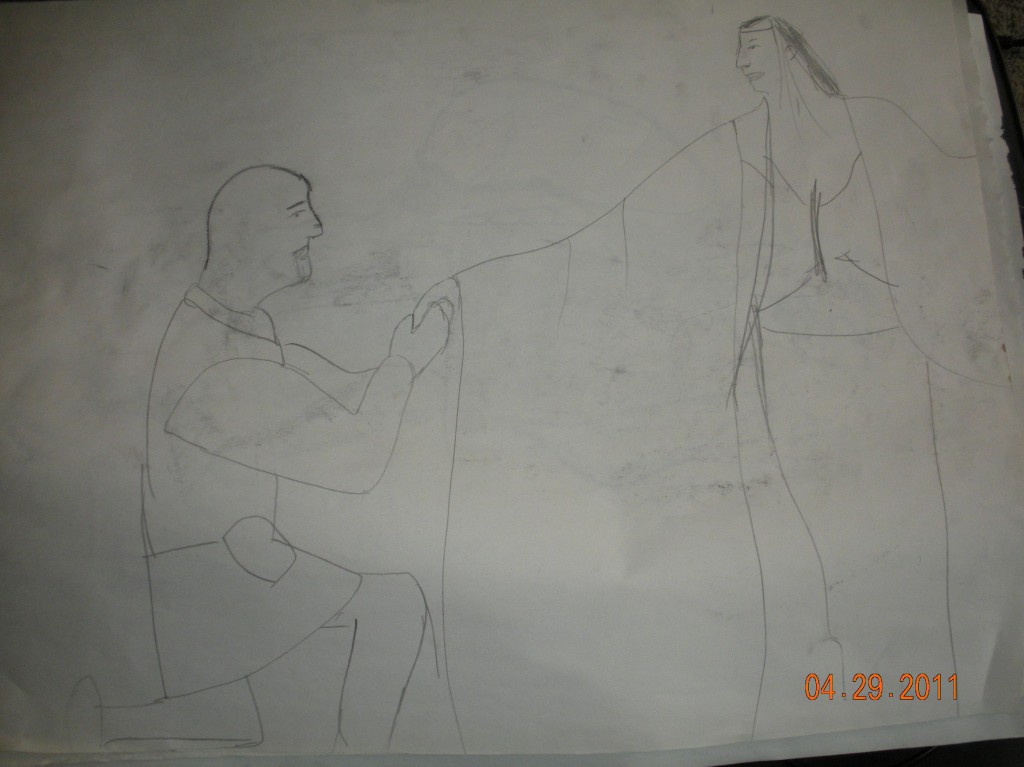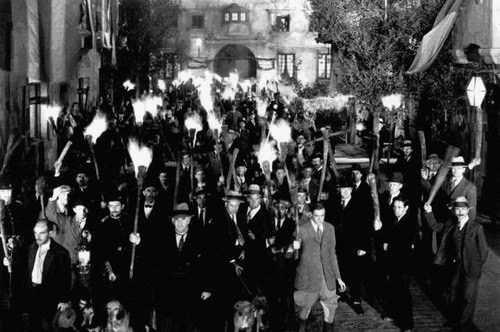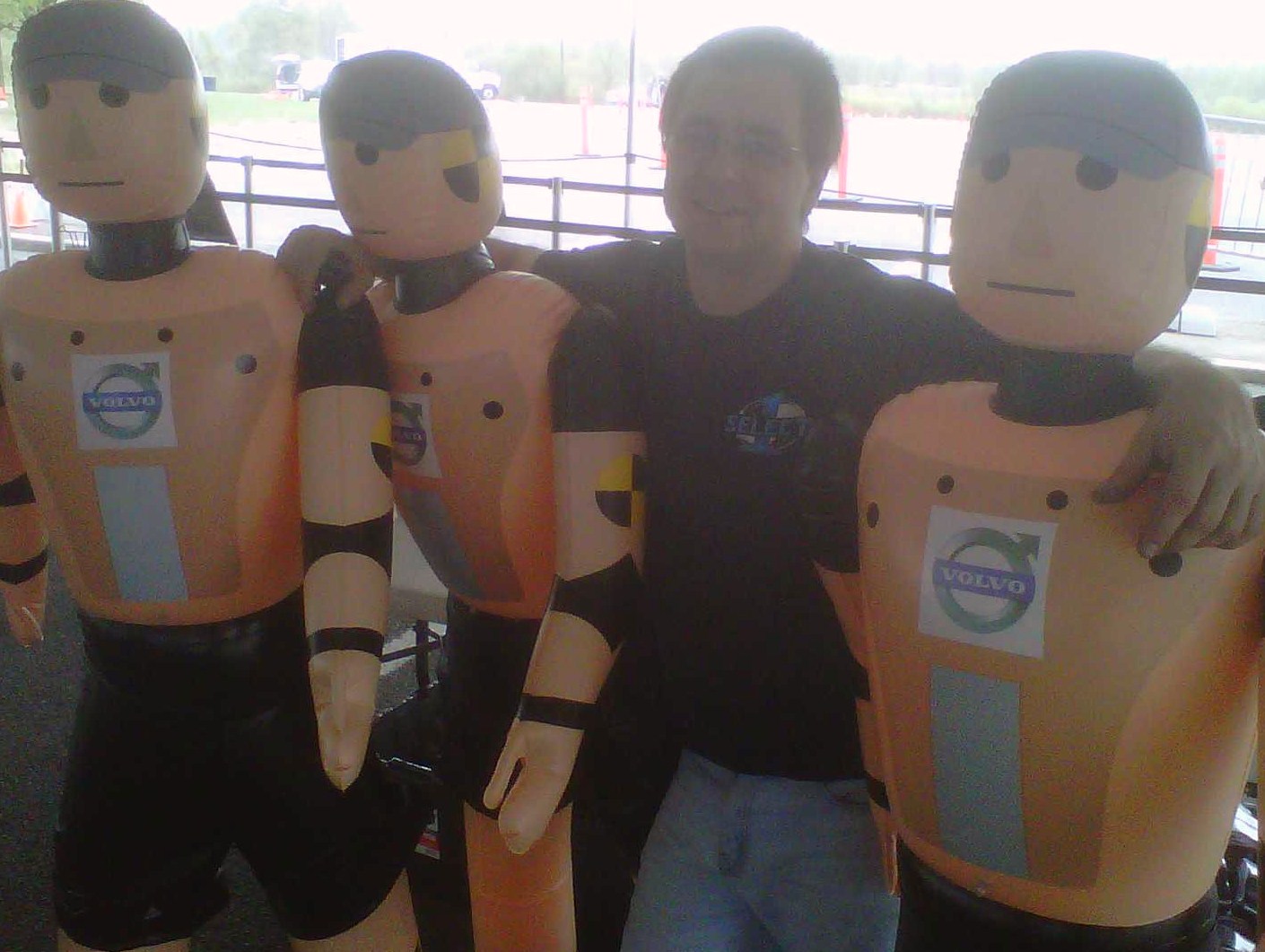Reviewed by Frank Dutkiewicz
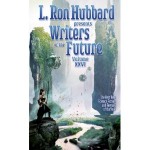 Time for my yearly review, Yippee! Last year I wrote a very long analysis on the winning story and another that I really, and of the authors that wrote them. A few took my comments as needlessly personal. I regret that. I was only attempting to illustrate the first impressions I had of Jordan Lapp and Emery Huang, which were swept aside when I read their stories. I by no means meant that either of them acted or did anything wrong. In fact, I think every author is entitled to a little self-promotion and should take full advantage of their fifteen minutes of fame in hopes of stretching it out into a life-long center stage. So that I won’t be misunderstood this time, I will only make this statement about this years award ceremonies; Laurie Tom’s red dress was hot!
Time for my yearly review, Yippee! Last year I wrote a very long analysis on the winning story and another that I really, and of the authors that wrote them. A few took my comments as needlessly personal. I regret that. I was only attempting to illustrate the first impressions I had of Jordan Lapp and Emery Huang, which were swept aside when I read their stories. I by no means meant that either of them acted or did anything wrong. In fact, I think every author is entitled to a little self-promotion and should take full advantage of their fifteen minutes of fame in hopes of stretching it out into a life-long center stage. So that I won’t be misunderstood this time, I will only make this statement about this years award ceremonies; Laurie Tom’s red dress was hot!
“Living Rooms” by Laurie Tom First place fourth quarter and Gold Award winner
Rill’s expected warm homecoming is cut short when she discovers her father has passed away and a distant uncle has moved into her childhood home in hopes of gaining control. The rooms have rejected him and are heartened by Rill’s return. However, for Rill to maintain control she must believe the house is hers or her uncle will be able to regain a foothold into the enchanted house. Rill has been away for eight years and hasn’t fully considered her father’s house hers, and all the rooms have not accepted her as their new master.
“Living Rooms” is a fresh fantasy concept. The rooms have personalities of their own and can manifest into people. The holographic like beings are anchored to their ‘room’ and can only leave their area when granted permission by their master. Rill’s father was an accomplished magician and she has only remembered a few of the basic spells of her youth. Her evil uncle, Morrin, is after something in the home. Rill must find out what he is after but not all the rooms in the house are cooperative. Morrin is eager to drive Rill away. If she can believe the house is hers his power will be nullified, but believing a house she felt like a prisoner in when she was a child is hers proves to be difficult.
It is easy to fall in love with this premise. Rill comes home expecting to reconnect with her father. The rooms of the house are servants to the owners and have appropriate personalities for their purposes. The story is set as a fantasy mystery. Finding out what Morrin is after is one of the driving forces of the plot. The premise is solid as was Ms Tom’s telling of the story. However, I found the plot a little too straightforward. The outcome was obvious to me early on, even if the details of what happened in between weren’t. The story lacked a sense of urgency I prefer of a thriller/mystery. What I found particularly disappointing was the villain. It may have helped if he was more active in the story. Instead he was the man lurking in the shadows, a distant danger instead of a more imposing one I would have preferred.
Grade B
“The Black Side of Memory” by Lael Salaets third place fourth quarter
Lt Det Kiv has been discharged from the army. Like others, his mind has been wiped of crucial details of the war. A former colleague greets him and convinces him to seek out the empty gaps in their memory. The government will stop at nothing to keep the facts of the war secret but a nagging feeling motivates Kiv to find the truth. But all he has to go on is a picture of a small girl drawn by a soldier in the psych ward at a VA hospital.
The premise to “The Black Side of Memory” hinges on a pair of soldiers eager to right a nagging wrong. Erased memory is something every soldier endures before discharge. Surprisingly, the radical procedure is flawed. Everyone knows (soldiers, public, the enemy) that the Colonial forces perform this routine procedure. Kiv and his companion have left a disk that will revive their lost memory, all they have to do is travel halfway around the world into enemy territory and evade government agents to find one small child on a big continent. Piece of cake.
The story itself showed promise at its start but became increasingly disappointing the further I read. The author’s storytelling I would best describe as wooden. The characters were stiff, the prose simplistic, and the plot unoriginal. It came across like a bad version of a Rambo knock off idea. I couldn’t help but to wonder why the government agents just didn’t shoot the pair to keep them quiet. If not an execution than a simple arrest on trumped up charges usually works well enough for any minor tyrannical government in today’s societies.
Grade C-
“Lisa with Child” by Alex Black second place first quarter
Karin is suffering from post-traumatic stress. She has been turning to alcohol to cope with the haunting visions of the war in her head. She hopes readmission into the Clandestine Services will help her deal with the flashbacks, then Lisa, her AI combat companion, puts everything in jeopardy with news Karin never dreamed would be possible; she’s pregnant with their child.
“Lisa with Child” is excellent Science Fiction. It introduces a possible future problem using mistakes made in the past. Lisa is a cyborg, created to assist her assigned air force officer, Karin, in the war to unify Korea. The Agency made her to be emotionally dependent to her assigned officer and physiologically indistinguishable from other people. Years after the war, she is still with Karin, serving as her bodyguard and servant. Her social development has been shaped by her programming and years of bonding with Karin. Karin feels as if Lisa has ruined her chances with the agency. Lisa however is a product of her creation, everything she does is for Karin’s own good.
Following Lisa’s logic through Karin’s perspective is the crux of this story. Like so many weapons introduce for a war effort (agent orange, rockets, nuclear power) the effects on society aren’t fully revealed until years after. “Lisa with Child” examines what could happen when human-like machines, built to protect and assist the people they are bonded to, are left with their assigned humans while their programs continue to evolve. The author’s ability to lead us along lends to this brilliant piece. Although it was perhaps the shortest story I read in the WotF anthologies in a long time, I found it full of content. The three characters are drawn well, all distinct and all believable. If I could find something to complain about it would be the length of the piece. I would have liked more but in all honesty the authors brevity of telling this tale may be the reason why it worked so well.
Grade A
“Not in the Flesh” by Adam Colston second place third quarter
Technical Officer Aaron Tanaka is assigned to determine if a battle android is flawed. The human faced android has demonstrated characteristics that are too human and discovering it gave itself a name does not bode well for it. Before Aaron’s order for destruction is completed disaster strikes. Aaron’s life is now in Peter the android’s hands, and his future depends on its emerging humanity.
“Not in the Flesh” is a story cut from the cloth of Isaac Asimov’s genius. Peter the android has become aware that he is a slave of humanity while Aaron’s role is much like a taskmaster in the pre-civil war south. Androids are tools, and a tool that is unpredictable is of no use. A sudden change in fortune flips the positions of the two characters. Thanks to Peter’s quick thinking, the two escape disaster but find themselves in predicament that is just as dire. Aaron faces death; an irreversible, no chance of resurrection, death. Lying to the android won’t make any difference and telling him the truth may save him from some needless suffering.
I am admittedly biased when it comes to this story. I am one of Adam’s first readers and have read several incarnations of “Not in the Flesh,” from his first inklings of an idea to his last draft. Reading it in print gave it a unique feel. It also showed me the reason why I believed Adam would hit the big time years ago.
Like other stories of Adam’s I have read, “Not in the Flesh” has a protagonist that is flawed. Mr Colston integrates Aaron’s flaws and makes them central to the plot. It is unlikely the story would have done as well if Aaron’s own prejudices weren’t a part of his characters make up. However, Mr Colston wisely didn’t cast him as an over-the-top futuristic bigot, instead Aaron’s distrust of Peter is deeper inside his psyche. As a result, Aaron is like a nice neighbor who occasionally grumbles about the ‘immigrant problem.’ Peter is the idealist; the altruistic visionary who would rather be considered an equal than a weapon in a desperate war. Lending to this delightful metaphoric tale is Mr Colston’s unique and subtle touches of humor. I particularly enjoyed the ending of the scene in the escape pod.
I think this story is very strong, but as a close associate of Adam I am unsure how clouded my judgment is. However, two other independent reviews have singled out his story as a standout. I would like to give him a high mark but because of our relationship and Adam’s tendency to suck upâ€
Grade withheld for being the teacher’s pet.
“Seeing Double” by Tom Crosshill first place first quarter
John and Sasha share lives. The New York soldier and Riga native were part of a cultural exchange long ago. Each person experiences the others actions while they sleep, in effect , live two lives. Sasha has become ill and John has come to Riga to seek him out. A burrowing unit has infected Sasha, threatening to sever the link between the two. Dima, Sasha’s brother, wishes John to be out of their lives, and isn’t above murder to do it.
“Seeing Double” is a dual perspective done through a single character. Jack-streaming is a way for two people to connect, share a mind. Sasha and John are opposites, relying on the others strength to compensate for their own weakness. Dima believes Sasha’s link with John has made him into something he isn’t. John travels to Riga for the first time yet is familiar with the place seeing it though Sasha’s eyes. Violence of a shared past catches up to the duo, and it is up to John to save them both.
“Seeing Double” is a fitting title because I had a hard time staying focused while reading it. Switching perspectives, sudden flashbacks, a conversation with a dead person inside a coffin†all made it difficult to follow. Just when I thought I got a grip of what was going on the scene would switch into something closer to a hallucination. I found the characters unlikable and the protagonist exceedingly violent. Although I had to read it twice to understand what I read, I did find the premise promising and understand why it would be so difficult to write.
Grade C
“Exanastasis” by Brad R. Torgersen third place third quarter
Arteus was the last person in the solar system left alive at his death. Ten centuries later, his ‘children’ have revived him and his long dead wife. An escaping ship of the war is returning to reclaim the Earth. The children have held true to Arteus’s plan of purging the Earth of humanity so it can recover before reintroducing cloned men to its surface. The strange ship is coming to reclaim the prize for itself, and demands the children and the moonbase to surrender.
“Exanastasis” is a story about a conflicted man. Arteus died devastated; the Earth destroyed in a war and vaporizing wife in the process. Hypatia is eager to see her husband, too eager for Arteus. He knows his wife isn’t the same person he knew and thinks of her as nothing but a copy, a product of his memory rather than the woman he fell in love with. The children are motivated by the plan, a plan Arteus no longer believes in or in the caretakers he created to implement it.
I found the first quarter of this story difficult to comprehend. It took me to the end to get a firm idea of what the children were. At first I thought they were corporeal creatures, floating aberrations like the ‘Dementors’ of the Harry Potter series. Too much of the story had to do with Arteus coming to grips with his resurrection and reuniting with his wife when a larger and more interesting story of the children caretakers, and a long ago foe returning, was there ignored. If I was reading this book for pleasure alone I may have dumped out of this story early, but it picked up and captured my interest enough for me to care about its ending.
Grade B-
“Poison Inside the Walls” by Scott W. Baker second place fourth quarter
Ashia is an experienced soldier, a caring mother, and proud woman. All she has become was built on a foundation of lies. While on patrol, she extracts the boils of a fungus, ingredients to an addictive drug, for her breeding-age son. Her youngest son is beautiful, the pride of the nursery, and Hector (the father) wants the credit of producing such a rare and healthy boy. Ashia wants no part of Hector and is willing to build on her foundation of lies to deny him the honor.
“Poison Inside the Walls,” like the lies Ashia lives, is a multi-layered tale. She is embarrassed and guilty for her eldest son. Ashamed and resentful of Hector. Distrusted and irritated of her superior officer. Then there is the Kree. The colony of Tora lost 90% of the men in an earlier invasion. Now the males are treated like studding stallions and the women are left to defend their world. Status means everything to the men and women of Tora and even more to Ashia. Her addicted son, Krusta, could care less about status and uses Ashia’s guilt to manipulate her. The result is a cast full of intriguing yet unlikable characters.
I have mixed feelings about this story. I found it ridiculous the circumstances Ashia put herself into. Risking your career for your son’s addiction is stupid. Denying a father’s paternity because he’s a jerk is foolishly vindictive, especially when the child’s welfare is at stake. Balancing against a frustrating premise is the writer’s raw talent. The story was quick paced and engaging. Ashia’s complicated life and evolving state of affairs was easy for me to accept because of the author’s ability to frame such an intricate plot. What I really loved was his description of the Kree. I wished the artist chose to draw one of them for this tale. The biggest sore spot for me was the ending, which I won’t explain so I won’t ruin it for those who haven’t read it.
Don’t be surprised if you are turned off by this premise. However, it speaks volumes of Mr Baker’s skill that he pulled it off. For that reason alone he deserves praise.
Grade A-
“Confliction” by Simon Cooper second place second quarter
Flynn Mason’s heart is about to fail. His black-marketed nanodocs in his blood are malfunctioning. Only an unlikely heart transplant can save him. Then the unlikely happens. The gift that saved his life has an unexpected price, a price too high for even a dying man to want to pay.
“Confliction”‘s premise relies on a futuristic technology called nanodocs, small machines that repair the body from within. The heart Flynn receives is from a scientist named Bernardo who was experimenting with the nanodocs. The nanodocs in Bernado’s heart has the capability of rewriting Flynn’s brain, supplanting his conscience with Bernado’s mind. Maxi, Bernardo’s lover, wishes to correct her mistake of donating his heart but the authorities are set to stop her. Flynn must decide who he must trust while fighting to retain his mind.
“Confliction” has three stages, all distinctively different but loosely tied together. The first couple of pages is of Flynn contemplating a failing heart, then there is a sequence of Maxi and government agents fighting over Flynn, and a third act with Flynn facing Brenado in the battleground of a shared mind. The failing heart opening had a nice hook but was a slow reel in. The second act I found slower and the characters cartoon-ish. I really wanted Flynn to just shoot them all at one point. The surreal third act came off like a fantasy battle with Bernado as a wizard who informs the hero that he must destroy him, but has no hard feelings about it. The story had flashes of brilliance but the mish-mashed stages had a way of turning me away. The result for me was mixed feelings for the entire piece.
Grade B-
“Digital Rights” by Brent Knowles first place third quarter
Izzy Mosh is the newest member of a solar collecting space station. Her job is the rein in the Assistants, AI cyber-space workers, who keep the station running and in one piece. The job is supposed to be temporary, and puts a strain on her marriage with her politically ambitious husband, but it grants her the chance to work with the leading AI psychologist in the system, Dr Rutgers. A ‘ghost’ has been spooking the Assistants, and someone has been leaving Izzy strange messages in her inbox. The odd doctor is surprised when he hears of them, but all fingers point back to his way. Izzy isn’t sure who is sending those verbal messages in her inbox but one thing is clear; the voice in those pleas for help is hers.
“Digital Rights” is a mystery whose mystery is lost 5 pages in. It becomes very obvious to the reader what is going on, and the crew isn’t all that clueless who is responsible as well. Dr Rutgers is a creep. The type of loner you’d imagine that hides behind a computer all day while surfing for depravity to titillate himself. Advancing technology in virtual reality grants the creep to advance into monster status. He disturbs the crew of women but Izzy wants to make excuses for him because of his accomplishments.
If I were to describe “Digital Rights” in one word it would be “long”. A mixture of exhausting inner monologues and overdone background bogged down a well-thought out premise. Much was made of Izzy’s marriage. We are shown a supporting and proud husband in one scene and a selfish, unsympathetic jerk the next. The story could have axed the governor-to-be spouse and not have missed a thing. Stuck in the middle of an equivalent of literary weeds is a lush story. There is a great premise that is choked by the author’s tendency to write down to his reader. I believe cultivated and trimmed, and rearranging the information to support a real mystery, this story could have been the standout piece of the anthology. Such as it isâ€
Grade B
“Coward’s Steel” by K C Ball , third place first quarter
Tate is a lonely girl. Her mentor and savior, Jolene, died weeks ago. Jolene taught Tate how to survive the Collapse by being suspicious of everyone. Tate sees something familiar in an old woman tending a fire. The chance meeting sets in motion a series of events that will influence her life, a struggling village, and a future’s past.
“Coward’s Steel” is a fantasy set in a dystopia. Tate lived most of her life following Jolene’s law. Her dead companion had so much influence on her Tate can still hear Jolene’s skeptical voice in her head. The voice drives a wedge between Tate and a caring community who have welcomed her with open arms. Tate carries a magical flask the old woman by the fire gave her, a flask that never empties of its whiskey.
The author wove a subtle puzzle within this finely crafted tale. The mystery of the old woman fades then returns later into the story. Tate is successfully cast as a loner who is destined to live in misery, even when opportunities for a comfortable and content life are presented to her. The villagers of Providence have done as well as a community weathering a global collapse can do. Outsiders are trouble and are dealt with harshly but those asking for help are never turned away. Tate finds friendship and love in the village but Jolene’s voice from the past warns Tate to not get used to it. The story is well done but a downer. I liked it but it left me bummed out in the end.
Grade B+
“Written in Light” by Jeff Young , third place third quarter
Zoi’ahmets is a wickurn gathering evidence to support her species in the Diversifrom Dispute. The tree-like alien is shocked and suspicious when a human stumbles into her. Kiona is a young girl who has crashed a rover transport in the jungle while on a photography expedition. Complications on what Zoi’ahmets should do about the human adolescent arise when Kiona develops a severe allergic reaction. Zoi’ahmets overrides her own suspicions to carry Kiona to safety, but the trek is long and Zoi’ahmets inability to call for help makes her wonder if seemingly unrelated events are connected to the Dispute.
“Written in Light” is a brave endeavor. The story is told from the viewpoint of a very alien species. Kiona is a mystery to Zoi’ahmets. First as she contemplates the biology and social order of humanity through a lost but proud pre-teen, then from Kiona growing serious condition of her injuries and unknown allergic reaction. Further complicating things for the wickurn is the fact that Kiona parents are part of an arbitrating body deciding the dispute.
Writing from the perspective of an alien species is always difficult. The author couldn’t have made it more so with such a novel idea like the wickurn. Mr Young developed not only one freakishly alien species but two, a butterfly like hive mentality called the chenditi. The author created a galaxy with an unusual concept of inter-species cooperation through a settlement program meant to include galactic community at large. In this tale a background model of radically different races existing side-by-side for the common good is presented. Zoi’ahmets uncovers a conspiracy to undermine this grand goal, and the wickurns sense of justice becomes the focus of the tale.
The story is a work of wonder. Mr Young’s ability to bring such an alien species to life makes him very deserving a spot in this anthology.
Grade A-
“The House of Nameless” by Jason Fischer , first place third quarter
Raoul the Minotaur lives a full life within a new reality and away from One-Way-World. Then a mysterious and blurry man bypasses all of Raoul’s safeguards and invades his home to inform him his world will be undone. The other gods have no idea who this powerful foe may be. Only Nameless has the answers in his head, answers that may undo everything.
Jason Fischer managed what I considered impossible; crack the contest with a work of humor. Much of “The House of Nameless” is a tongue-in-cheek work of fantasy. The myth heavy tale follows the formidable Raoul as he seeks answers on how anyone, or anything, could penetrate his fortress home. He first tries Nameless’ house then sets foot on the deck of a ship of debauchery, where he rescues a loved one he abandoned. Events lead to a show down, and answers of the blurry ones identity.
“The House of Nameless” is sharply written. I found the tale quick and the protagonist likeable but the plot was much like the antagonist, blurry. Following along on Raoul’s adventure was like making sense of a dream after eating a spicy meal of Mexican food. Too many weird things were going on. The comedy went way over on the ridiculous for it to be funny for me. Nice effort though.
Grade B
A Lopsided Trend And How It Influenced The Winner
A friend asked me a while ago what was his best chance at winning the contest. My answer — “Robots”. I should have followed my own advice.
I doubt you could find a previous volume that didn’t have at least two stories with an AI or bionic theme. WotF just likes them. True, there are many variations possible for the robot sub-genre, and you’ll usually find a nice mixture of fantasy and other sci-fi themes in every volume. However, this years anthology favored the sub-genre so much they could have called it I, Robot.
Five stories were based on artificial intelligence. Another three took the six-million dollar man route, focusing on cybernetic implants in their characters. That meant two-thirds of the winners were in the sub-genre and its sister theme, and I didn’t even include Jason Fischer’s piece, which had a robot but only as comic relief. WotF has traditionally shunned other time-honored sub-genres. Like dragons? Can’t remember the last time I read one in a WotF contest. Fantasy epic? Tolkein would have never stood a chance. Same if like to write about ghosts, zombies, and any other creature Abbot and Costello may have run into. In fact, fantasy took a back seat this time around. Only three winners, one-fourth of the contest slots, were fantasy. Not good if you entered four fantasy entries last year. So why did so many stories based on a small corner of the Sci-Fi genre win? Do the judges favor robots? Or were these stories just simply the best entries written by the best authors? I believe the later tailored to the former.
According to the authors’ bios, this years class was loaded with veteran writers. 11 of the 12 winning authors (congrats to K C Ball for striking pay dirt on her first try) have shown a history of submitting to the contest and to other publications as well. This year’s authors have an impressive pile of honorable mentions and 3 failed finalist entries among them. Good writers who work their way up the ranks pay attention to what motivates an editor. Most magazines ask you to read an issue. Good writers will read more than one. I am betting it was no coincidence the writers who have been nipping at the contests heels for so long decided robots were the way to go. Good for them, not so much for the contest.
It is rumored fantasy submissions dominate the contest. Although I favor sci-fi over fantasy, I believe most of the readers don’t. Hopefully this year’s trend was just a coincidence. I would hate it if readers are turned away because the content just doesn’t fit their taste anymore. Equally as tragic would be if fantasy exclusive writers stop submitting because of the contests weighted preferences. We shall see what happens in the future.
So what made this year’s winner so special? I think I know.
I found “Living Rooms” to be a solid story. The protagonist was likeable and the plot compelling, but so were a majority of the other entries. Although I found it solid the writing fell short of sharp. At 52 pages it was the longest of the anthology. I just can’t see why the plot justified such a length. Compared with the works and styles of the judges (at least the ones I have read), I don’t believe they would have needed so many pages to tell the same story. Ms Tom took extra pains at providing exposition. Her protagonist inner monologues and an overemphasis on back-story appeared as if she worried the reader would miss important details. The result was a slower pace. Not a crawl, but more of a leisurely stroll. The extra exposition also robbed the piece of much of its mystery, a pity because it had the making of a great one.
It could be Ms Toms took notice of the contests’ desire to make the anthology student friendly, not so racy so it couldn’t be placed in a high school library. “Living Rooms” I believe had a very young adult feel to it. In fact, I think the piece would fit well in any middle school classroom. So is its encompassing friendly appeal to a wide audience the reason it won? Not a chance. The answer why it did is clear if you consider the judges preference for robots this year. Originality.
Most of the characters in “Living Rooms” are Artificial Intelligence creations. The rooms, as personified spells, act like robots. They have rules to their behavior and are limited by their creators programming. Some seek to be more, like James of the parlor, while others cannot overcome their instructions, like Martin of the master bedroom, even when following those instructions runs counterintuitive to their own good. Although the story lacks any science whatsoever, the rooms in Ms Toms piece are as robotic as anything Isaac Asimov created. In a sense, she plucked robots out of science fiction and planted them firmly in fantasy. Likely she was just lucky to submit the right story at the right time but it doesn’t make “Living Rooms” any less innovative or brilliant. Even though I graded past winners higher, and a good deal of the stories in this volume as well, her story may be the most deserving of the gold award in a decade.
Congratulations, Laurie. You earned it.
 Frank went to his first writers convention recently where he meant a half-dozen authors, whose works he reviewed, in a dark alley at back. Frank was very encouraged to learn how passionate they were about their craft and was pleased to discover theyÂtook his reviews so seriously. The next convention he attends he plans on bringing his own friends to add to anyÂfuture discussions.
Frank went to his first writers convention recently where he meant a half-dozen authors, whose works he reviewed, in a dark alley at back. Frank was very encouraged to learn how passionate they were about their craft and was pleased to discover theyÂtook his reviews so seriously. The next convention he attends he plans on bringing his own friends to add to anyÂfuture discussions.

